The Guardia Civil and the National Police have dismantled a criminal organisation that recruited women in their country of origin and in Spain, exploiting them for sexual purposes in a brothel in Gandía.
Seven individuals were arrested during the operation, including six men and one woman. Additionally, seven investigations were conducted: four in private residences, one in an apartment (brothel) where women were being sexually exploited, and two in mechanical workshops.
The police initiated the investigation in 2024 in response to a complaint from a woman who claimed to have been the victim of sexual exploitation by a human trafficking organisation in Gandía.
This information, combined with the numerous investigations conducted by investigators, enabled the identification of a criminal organisation that specialised in the sexual exploitation of women in an apartment in Gandía. Subsequently, investigators discovered that the criminal network’s members intended to expand their operations and establish new prostitution residences in the same town. This endeavour was averted by the police operation.
The criminal organisation was committed to the recruitment of women of South American descent (Colombians and Venezuelans) in both Spain and their respective countries. In the majority of instances, these women were in precarious circumstances and lacked a viable alternative to enhance their economic and personal circumstances.
Transfer and capture
Fellow Colombians and collaborators of the criminal organisation recruited the victims in their home countries, taking advantage of their precarious economic conditions and vulnerability. The latter acted as liaisons for the initial recruitment, which resulted in their subsequent transfer and sexual exploitation in Spain. In the same vein, the suspects also recruited women who were already living in Spain, offering them a “place” in the brothel where they would subsequently engage in prostitution.
The women from their countries of origin were recruited by the perpetrators, a couple of Colombian descent who were also responsible for surveillance at the prostitution house. They were the ones who first initiated communication with the victim. The primary individual in charge of the organisation later contacted the woman via video call to confirm that she met specific criteria for engaging in prostitution.
Additionally, the suspect assured them that they would be able to earn substantial quantities of money through prostitution in Spain during the recruitment process, without providing any specifics regarding the conditions to which they would be subjected. The women accepted this offer with the expectation of enhancing their economic circumstances in their country of origin. The expectation was due to the fact that the majority of them were from underdeveloped countries and had no viable alternative to enhancing their personal and economic circumstances. Nevertheless, upon their arrival in Spain, these conditions were far from actuality, as they were compelled to engage in exploitative prostitution and received only a small portion of the profits.
Once the victims accepted the offer, the criminal organisation would arrange for the necessary expenditures for crossing the border, including hotel reservations, travel insurance, the provision of sufficient financial resources, and the purchase of plane tickets from Colombia to Spain. The victims were instructed on how to simulate their entry into Spain as travellers to avoid detection at airport border controls prior to their departure for Spain.
The women were led to the prostitution house in Gandía, where they would engage in prostitution, after being hailed by the organisation’s leader or a Colombian couple upon their arrival in Spain.
Living circumstances
Upon their arrival at the prostitution house, the victims were compelled to work continuously for 24 hours, seven days a week, without any pauses. They were unable to decline to provide sexual services to clients or to refuse to serve them. Also, clients had to come in pants to choose a sex worker. They were unable to decline any client or sexual service. To advertise their services on a variety of sexual content websites, the network members required the victims to have their photographs taken.
Transporting the woman to the agreed-upon location was the responsibility of one of the suspects in the event that a client requested sexual services outside the brothel. Once the client’s agreed-upon time had expired, she was escorted back to the brothel to continue engaging in prostitution. In this manner, the organisation maintained control over the services rendered by the women and the collection of their revenues, as well as any travel they undertook outside of the brothel.
Although many of the victims had never used these substances before, they were compelled to consume narcotics (cocaine or cocaine) with the clients upon request during their exploitation. The organisation’s objective was to increase its activity and longevity, as well as to satisfy its clients and ultimately generate higher profits. Additionally, the suspects provided sexual enhancers, including Viagra and sildonafil, to clients who requested them in order to increase the criminal organisation’s profits.
Organised structure
There were numerous levels in the organisation. At one point, its members recruited women, primarily Colombians, for the purpose of providing shelter and transportation to a flat in the aforementioned municipality. At the subsequent level, others transported the women to sexual services, while at the final level, members supplied the brothel’s clients with narcotics. The primary suspect exercised strict control over the women undergoing sexual exploitation.
Investigation of money trafficking
The results of telephone surveillance and an analysis of bank accounts belonging to the individuals under investigation suggest that the criminal organisation may be engaging in money laundering.
In particular, the criminal organisation is purported to have conducted financial transactions of questionable origin, utilising virtual cryptocurrency wallets to transfer the proceeds from their illicit activities to other countries, including Bulgaria, where they allegedly acquired movable and immovable property. Similarly, members of the criminal organisation were registered as self-employed workers in a variety of ostensibly legitimate jobs, such as mechanical workshops, with the intention of laundering the profits made from prostitution.
The investigation revealed that the network members had intended to expand their activities and establish new prostitution houses in Gandía. However, the police operation averted this movement.
Six Bulgarian and Romanian males, aged 35 to 54, and a 20-year-old Colombian woman were arrested because of the operation. They are accused of the following offences: narcotic trafficking, illegal detention, prostitution, crimes against foreign citizens, and criminal organisations dedicated to human trafficking, sexual exploitation, and money laundering.
The following items were confiscated during the seven searches: €15,870 in cash, 14 mobile phones, a video surveillance camera, a micro SD card, notebooks and incriminating documentation related to the crimes under investigation, Renfe tickets, two watches, Colombian, Venezuelan, and Bulgarian banknotes, a laptop, 11 cars, and a variety of narcotics (32 grammes of cocaine and 15 single-dose tablets of Tusi). Furthermore, 250 sildenafil (Viagra) pills, as well as other anabolic steroids and injection apparatus, were confiscated.
A total of 38 potential victims were identified during the investigation, of which six have already been identified and have testified as protected witnesses.
Officers from the Guardia Civil’s EMUME (Minor Women’s Team) conducted the investigation in collaboration with Group I of the Central Brigade Against Human Trafficking (BCTSH) of the General Police Station for Immigration and Border Control and Group I of the UCRIF of the Provincial Brigade for Immigration and Border Control of Málaga, National Police.
The proceedings were transferred to the Court of First Instance and Investigation No. 1 of Gandía.

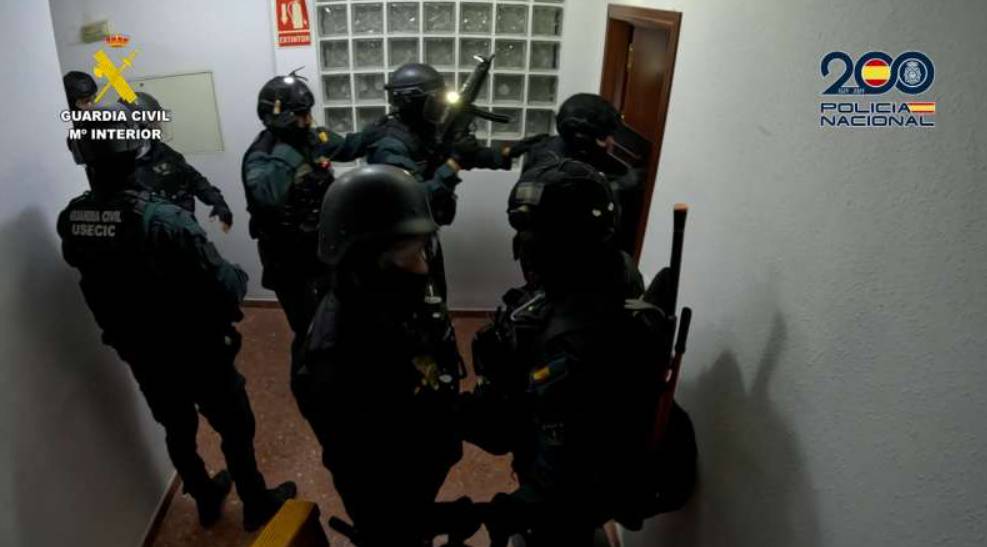

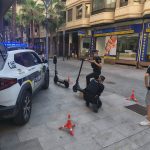
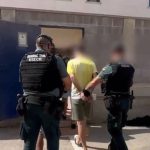

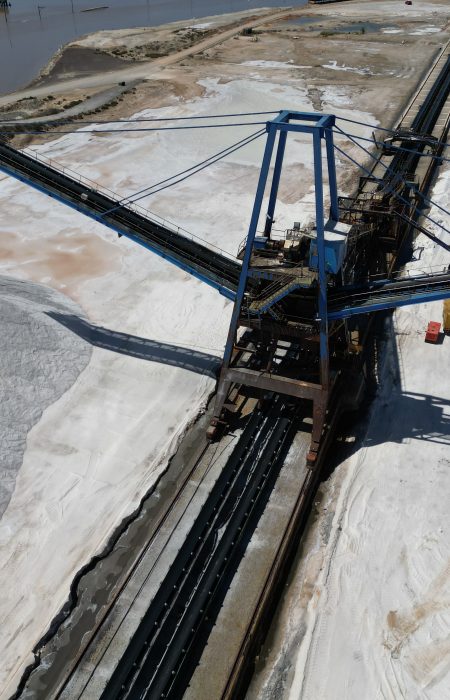

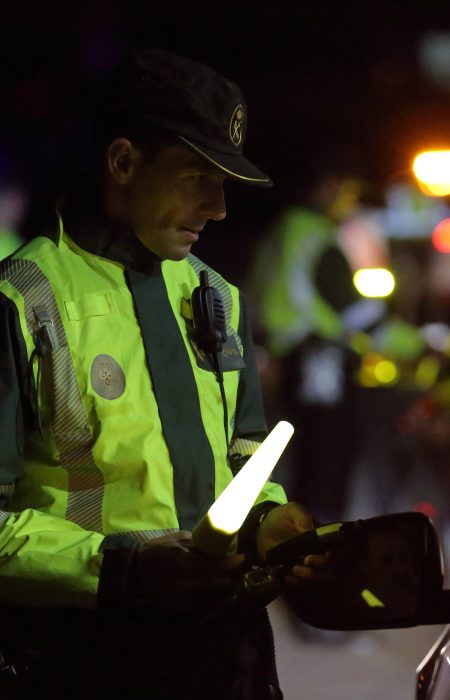
No Comment! Be the first one.